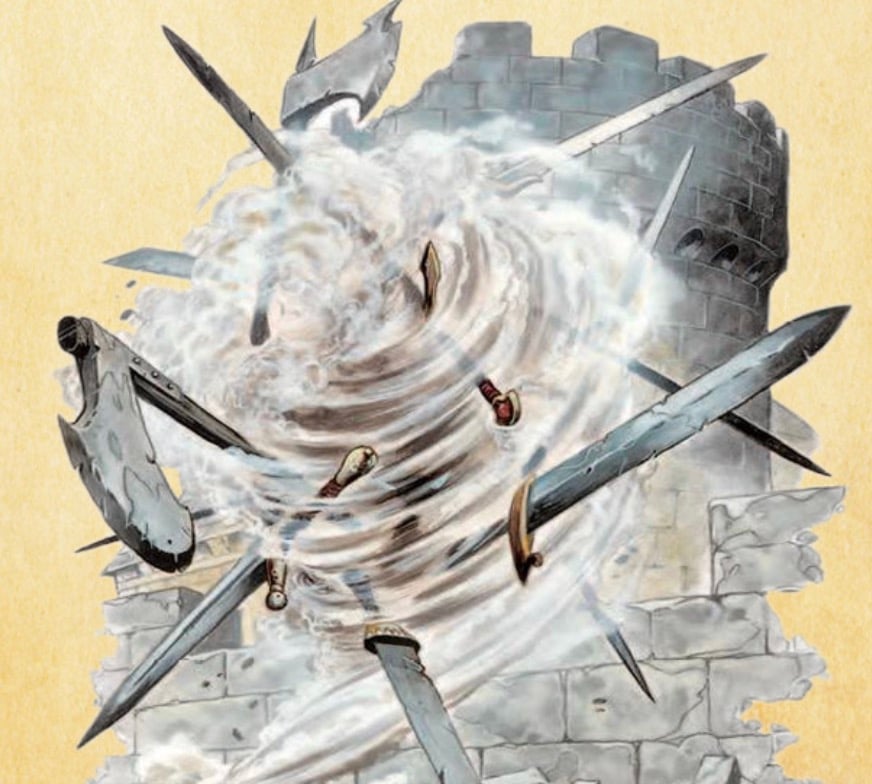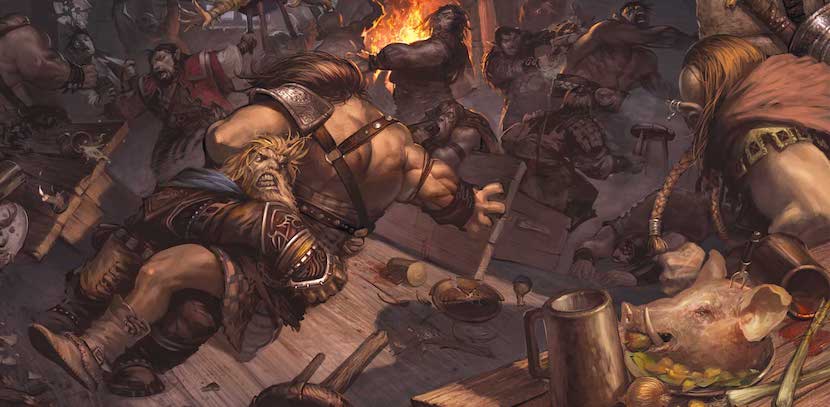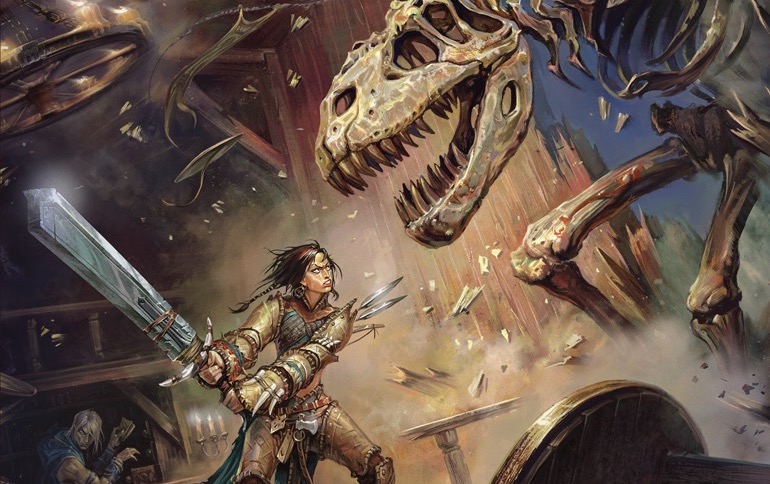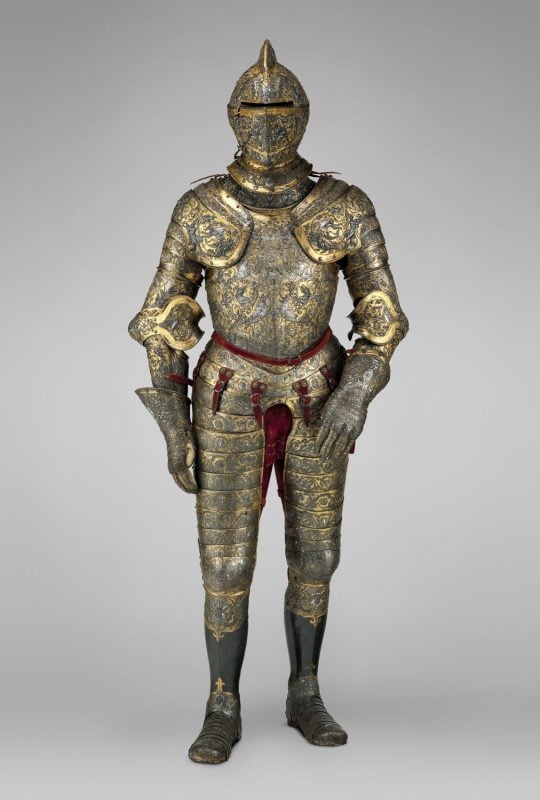Pathfinder Proficiency Preview – Prepare PCs Presently


Pathfinder 2.0 introduces their own new spin on proficiency, come see how it all unfolds.
Pathfinder 2.0 continues to show off some of their new mechanics, some of which have a familiar cast to them. Like today’s preview–proficiency. Now, proficiency has existed in d20-based fantasy roleplaying games since at least 2nd Edition Dungeons and Dragons. Many an hour has been spent poring over the non-weapon proficiency tables–and that’s hardly taking into account what weapons you can and can’t use.
These days it’s come to mean a sort of baseline modifier applied to all rolls. It was always lurking at the back of the skill systems, since 3rd Edition. You could see it reflected in the base attack bonus as well–but it wasn’t until 4th Edition that the math became less an implicit assumption of the math (players will max out skill points as they go and have a baseline modifier of 4 + level), and more an explicit function of the system. Weapon attacks and skill checks were united, both feeding off of the same number. In 4th, it was half your level. In 5th, there’s a table that ranges from +2 to +6.
And in Pathfinder 2.0, it seems like proficiency will, first and foremost, be determined by your level. This seems like it could be problematic to me, but let’s dive in so you can judge for yourself.
via Paizo
In the new proficiency system, your proficiency matters for just about every check you attempt and DC you have. You don’t just have proficiency in weapons, which helps when you swing a sword, or proficiency in armor, which protects you when you try to avoid a blow—instead, proficiency covers everything from axes to spells, from Acrobatics to Thievery, and from Perception to Will saves. Your proficiency in Fortitude saves can allow you to shake off virulent poisons in an instant, and your proficiency in Diplomacy might help you stop a fight before it begins.
Advertisement
There are five different tiers of proficiency, Untrained, Trained, Expert, Master, and Legendary–each with a corresponding modifier, -2, +0, +1, +2, and +3 respectively. And that’s it. Each tier is walled off by levels–characters might be hard passed to become masters in a skill, say, until 7th level. But I don’t know how much of a difference that ultimately makes, and that boils down to the other half of proficiency modifiers: your level.
Your proficiency modifier is based partly on your rank and partly on your level—you add your level to the modifier from your rank to determine your proficiency modifier. For instance, a level 20 rogue who is legendary at Stealth might have a +23 proficiency modifier, while a level 1 paladin who is untrained at Stealth might have a –1 proficiency modifier.
Leaving aside for the moment the implicit fact that your ability scores don’t seem to modify your roll here, this mechanic feels straight out of 4th Edition. With all the problems that entails. It places an incredible amount of emphasis on level, which makes me wonder how important your modifier number actually is.
On the one hand, an extra +2 or 3 might be all the difference in the world–but does that mean Pathfinder 2.0 is going to be a game about squeezing every advantage players possibly can out of their characters? In 4th Edition you had to optimize your character a fair amount if you wanted to fight the real heavy hitters of whatever tier of play you were at. Doubly so for legendary monsters like Demogorgon. A player would need to max out their primary stat, have an accurate weapon at the highest magical bonus, and an expertise feat in order to hit those monsters on an 11+.
The principle behind that design decision boils down to “every plus matters,” which is a solid choice. Players want to feel like the bonuses they’re earning matter. They want to feel powerful. That’s a big part of the game, feeling heroic and powerful, so yes, absolutely, every plus should matter.
But it’s a decision that can be approached in two very different ways. On the one hand you have the 4th Edition method where every plus was paramount to your success. Players were rewarded for optimizing their characters and punished in a sense for not. After all, if you didn’t max out your character you might be only hitting on a 15+, and that doesn’t feel great for anyone, player or gm. Whatever size of the screen you’re on, it feels good to hit. Nobody wants that round that is mostly misses.
The other way to tackle making pluses matter is by making each plus feel significant. That’s what 5th Edition does with their bounded accuracy system. Even a +1 makes a huge difference to a character, because the numbers don’t really get out of hand. It forces everything to stay relevant–but it also has this side effect of players not really needing them. It is possible to succeed and feel powerful in 5th Edition without ever getting a magic sword or maxing out your character. Armor classes don’t get that high, DCs for skills and the likes are reachable even at early levels–it just gets easier to do cool things. And there’s this paradoxical thing where, because you don’t need a +1, every time you get one it feels that much more impactful. It makes it easier to do what you were already able to do.
Pathfinder seems to be leaning more towards the latter–in that there will probably be a huge difference between needing a +23 vs. a +20, but that doesn’t feel very exciting to me. That was one of the things that was problematic about 4th Edition–it felt like the expectation was that you would optimize and if you didn’t, it could be punishing. But on the other hand, if we’re going with the other option for modifiers mattering, then it seems like you’d be able to coast by on level alone. Even a paladin untrained in stealth would be at +18 by the time they hit 20th level.
All that said, there are some very interesting mechanics hinted at here. I love the idea of your mastery in a skill penning up new options, perks, or abilities without necessarily even needing to make a check. If I can be legendary at Jumping, for instance, and gain some kind of leap attack ability, that’s radical. That’s something that makes investing in mastery worthwhile.
We won’t know for sure until we get a closer look–but seeing rules like this gets me thinking about the underpinnings of our games–and the whole point of these sorts of previews is to get people talking anyway. So let’s chat.
~What do you think about this proficiency mechanic? How do you like to feel like your characters are progressing?







